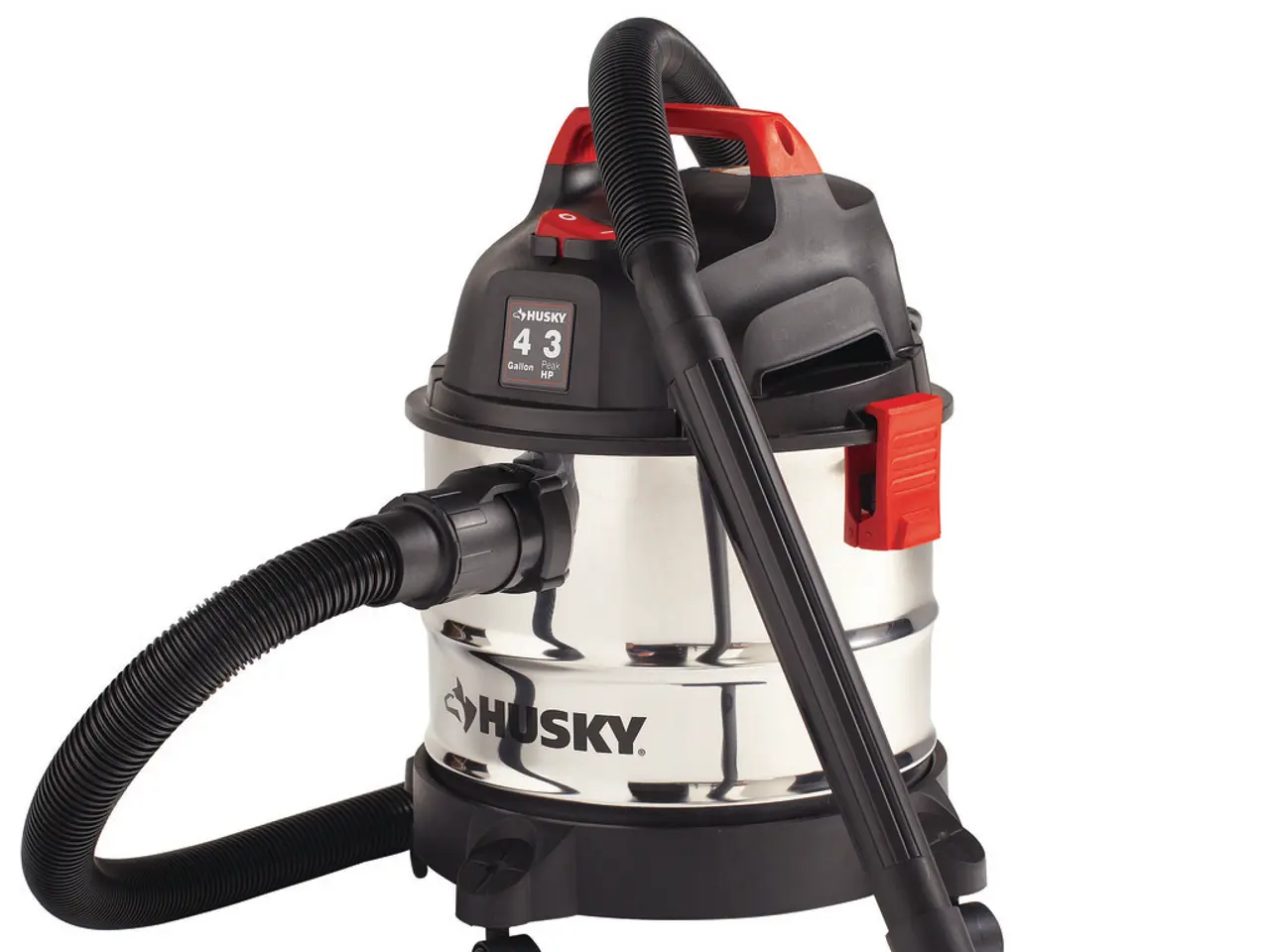Sustainable Household Cleaning: Keep Your Home Spick-and-Span Eco-Friendly with Home-Made Cleaning Solutions
========================================================================
In the quest for a cleaner and greener home, there are numerous ways to reduce our environmental footprint while maintaining a spotless living space. From homemade dish soap to all-purpose cleaners, natural ingredients can be harnessed to create effective and sustainable cleaners. Here are some simple recipes and tips to get you started on your eco-friendly cleaning journey.
1. Natural All-Purpose Cleaner (Vinegar-Based)
Combine 250ml white vinegar, 250ml water, and 10 drops of essential oil (lavender, tea tree, citrus, or blends) in a 500ml spray bottle. Shake well before use and spray on countertops, sinks, glass, and wipe with a reusable cloth. This concoction disinfects and cuts grease, with essential oils adding antibacterial properties and a pleasant scent. Avoid using on natural stone like granite or marble, and hardwood floors.
2. Lemon Vinegar Cleaner
Place lemon slices in a spray bottle with water and vinegar and let sit for 2-3 weeks to reduce vinegar smell and infuse lemon scent. This solution is suitable for general kitchen and bathroom cleaning. Citrus natural oils help break down grime, while vinegar adds disinfecting power, providing a pleasant natural fragrance that avoids chemicals.
3. Baking Soda Cleaning Paste
Create a paste by mixing the juice of half a lemon with 4 tablespoons of baking soda. Use this paste for scrubbing rust, stubborn marks, and rinse with water and a cloth. Baking soda is also a deodoriser and shines stainless steel when mixed with warm water and used as a spray cleaner.
4. Homemade Floor Cleaner for All Hard Floors
Mix water (filtered or distilled preferred) with vinegar or a mild detergent for mopping. Vacuum before mopping to avoid grit and streaks, and do not use with steam mops. Change or rinse mop heads often for best results.
General Tips for Sustainable Cleaning
- Use microfiber cloths that clean effectively with just water, reducing chemical use.
- Avoid commercial products listing "fragrance" or harsh chemicals to minimize toxicity.
- Use reusable cleaning cloths instead of disposables to reduce waste.
By making your own cleaners from these natural, non-toxic ingredients, you reduce exposure to harmful chemicals, decrease plastic packaging waste, and often save money. Integrating sustainable alternatives into your daily routine can make your home sparkling clean the green way.
Bonus Tips
- Pasta water can be used as an eco-friendly cleaning product due to the starch forming a gel that binds dirt and grease.
- To remove a stain with carbonated mineral water, pour it onto the stain and dry it with a clean cloth in circular motions.
- Adding a few drops of essential oil to cleaning products can add fragrance, but use colourless oils to avoid creating new stains.
- For the next wash, add a cup of the homemade dish soap to the dishwater.
Embrace the green revolution and embark on your homemade cleaning adventure today!
- Science behind natural ingredients can help create effective and sustainable cleaners, serving both health-and-wellness and environmental-science purposes.
- A well-maintained home that leverages sustainable-living practices, including homemade cleaners, can contribute positively to a healthy lifestyle.
- Fashion-and-beauty products often contain toxic ingredients, but essential oils used in homemade cleaners can provide a pleasant scent, aligning with a cleaner and greener lifestyle.
- By opting for homemade food-and-drink alternatives, such as pasta water as an eco-friendly cleaning product, one can further minimize plastic packaging waste and promote a sustainable living approach.
- The home-and-garden sector benefits from sustainable cleaning practices, with not only cleaner and greener spaces but also a decrease in the use of harmful chemicals beneficial for relationships and travel experiences.
- Shopping intentionally for cleaner and greener options, such as buying natural cleaning products, promotes a lifestyle that's more eco-conscious and responsible.
- Integrating sustainable alternatives into one's daily routine demonstrates a commitment to the environment and, in turn, fosters a deeper connection with the world, injecting a dose of environmental-science into relationships and fostering a sense of global stewardship.




